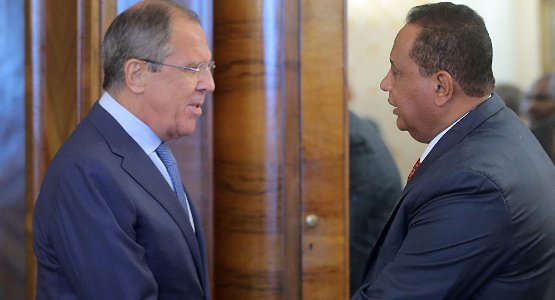Sudan, Russia sign agreements to develop mining sector

October 13, 2016 (KHARTOUM) – Sudanese and Russian governments have on Thursday signed several agreements to develop Sudan’s mining sector after three days of discussions in the Sudanese capital, Khartoum.
Director of Geological Research Corporation, Al-Nour Koko, signed for the Sudanese government and Facile Stainouef signed for the Russian Geology Company.
In a press statement after the signing ceremony, Sudan’s minister of Minerals, Ahmed Sadiq al-Karouri, said the agreements are the fruits of the Sudanese Russian Joint Committee. In December, Sudan and Russia signed 14 agreements on investment in oil, minerals and banking sectors at the end of the Sudanese Russian Joint Committee meetings.
“The agreement with Russian Geology Company includes development of minerals and the geological laboratory,” said al-Karouri, adding that the agreement includes benefiting from Russian advanced mining technology as a pioneer country in the field.
Al-Karouri pointed that the agreement includes drawing a detailed geological map for Sudan which would be used for promoting mineral sector and as a database for minerals in the country.
The minister also noted that the Russian company would finalize detailed studies for five sites including banking studies.
“The agreement will give Sudan access to Russian information on minerals in Sudan since the Soviet Union era and up to now,” said Al-Karouri.
The official went on to say that he is personally sponsoring the agreement which would be implemented within 20 months. In June, al-Karouri said that gold production in the first quarter of the current fiscal year reached 22.3 tones which generated some $903.13 million.
In April, the Ministry of Minerals said that the country’s production of gold has risen by 3 percent compared to 2015, according to the first quarter of 2016 report. Near 70% of the country’s gold production in 2015 was produced in the River Nile State. The traditional mining represents 90% of gold production in Sudan.
Sudan currently ranks third in gold production behind South Africa and Ghana but aims to land in the first place by 2018.
Gold has become one of Sudan’s largest exports which partially compensated for the loss in oil revenues, which accounted for more than 50% of income until 2011 when South Sudan seceded, thus taking with it most of the country’s oil reserves.
Sudan approved a law to regulate traditional mining by granting licenses and specifying areas to work in to protect them from hazardous conditions and smuggling.
It is believed that traditional mining employs more than a million Sudanese but it is still difficult to obtain credible data.
(ST)
